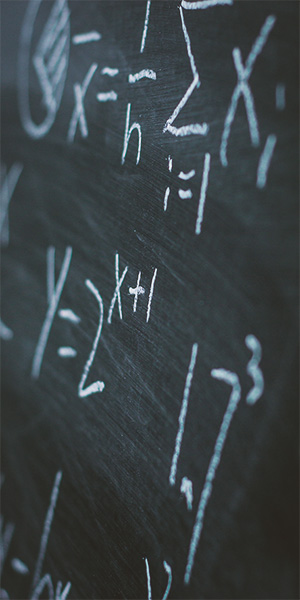Math 12 Foundations
Ministry code: FOM 12
It is recommended that students complete: Foundations Mathematics 11 or equivalent prior to enrolling in this course.
This course is designed to provide students with developing mathematical understandings that are identified for post-secondary studies in programs that do not require the study of theoretical calculus. Topics in this course include financial mathematics, conics, probability, relations and functions and fractals.
View the Ministry of Education guide
Unit 1: Investing Money
- Lesson 1: Simple Interest
- Lesson 2: Future Value and Compound Interest
- Lesson 3: Using Technology for Financial Calculations – Part One
- Lesson 4: Using Technology for Financial Calculations – Part Two
- Lesson 5: Compound Interest with Regular Payments
Unit 2: Borrowing Money
- Lesson 1: Analyzing Loans
- Lesson 2: Credit Cards and Pay Day Loans
- Lesson 3: Investigating Credit Card Repayment Options
- Lesson 4: Should you Buy, Lease, or Rent?
Unit 3: Combinatorics
- Lesson 1: Fundamental Counting Principle
- Lesson 2: Permutations when Objects are Not Similar
- Lesson 3: Permutations when Objects are Similar
- Lesson 4: Combinations
Unit 4: Probability
- Lesson 1: Probability Terminology and Notation
- Lesson 2: Mutually Exclusive Events: A and B
- Lesson 3: Conditional Probability Events: A and B
- Lesson 4: Problems Involving Conditional Probability
- Lesson 5: Probability Involving Permutations and Combinations
Unit 5: Polynomial Functions
- Lesson 1: Graphs of Polynomial Functions
- Lesson 2: Characteristics of the Equations of Polynomial Functions
- Lesson 3: Using Technology to Model Data with a Line of Best Fit
- Lesson 4: Using Technology to Model Data with a Curve of Best Fit
Unit 6: Exponential and Logarithmic Functions
- Lesson 1: Characteristics of Graphs of Exponential Functions
- Lesson 2: Characteristics of Graphs of Logarithmic Functions
- Lesson 3: Using Technology to Model Data using Exponential and Logarithmic Functions
Unit 7: Sinusoidal Functions
- Lesson 1: Radian Measure and Angles in Standard Position
- Lesson 2: Characteristics of Periodic Functions
- Lesson 3: Sinusoidal Functions
- Lesson 4: Using Technology to Model Data with Sinusoidal Functions
Unit 8: Conics
- Lesson 1: Introducing Conic Sections
- Lesson 2: Conic Sections as a Locus
- Lesson 3: Ellipse and Hyperbola as a Locus
- Lesson 4: Applications of Conics
Unit 9: Constructions and Fractals
- Lesson 1: Constructing Perpendicular Bisectors and Tangents
- Lesson 2: Polygons, Tessellations, and Geometric Art
- Lesson 3: Introduction to Fractals, Fractal Geometry, and L-Systems
ASSESSMENT
| Item | % of final mark | Notes |
| Unit Reviews | 20% | |
| Unit Tests | 10% | (not supervised) |
| Quizzes, Math lab, Project | 20% | |
| Midterm Exam (Units 1 to 4) | 25% | SUPERVISED |
| Final Exam (Units 5 to 8) | 25% | SUPERVISED |
Please Note: Quizzes and Unit Tests are not supervised but are expected to be written with integrity. The two exams (Midterm and Final) are supervised. Students are encouraged to secure a teacher from their regular school to assist in test supervision, or go to a testing centre. If neither of these options are available, contact your teacher to arrange online supervision.
Required Resources: a computer with internet access and headphones/speakers. A graphing calculator.

